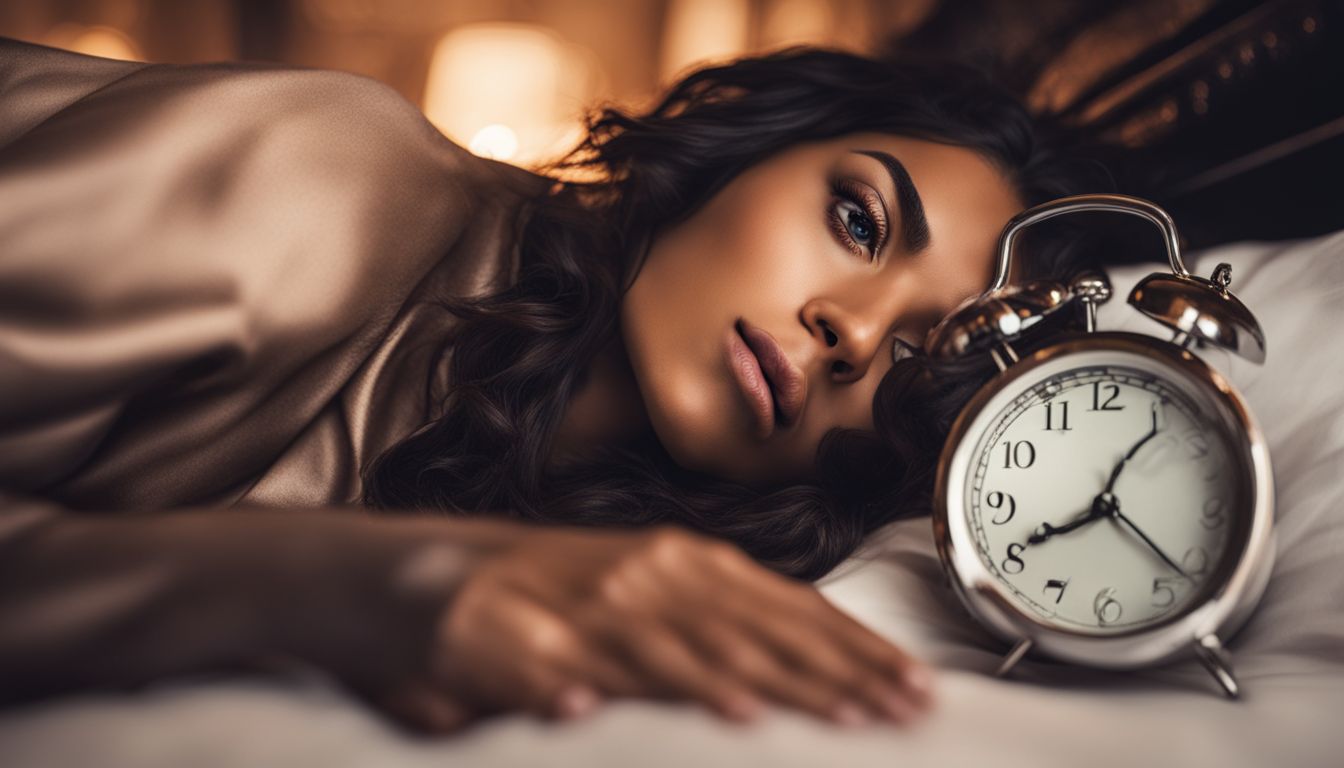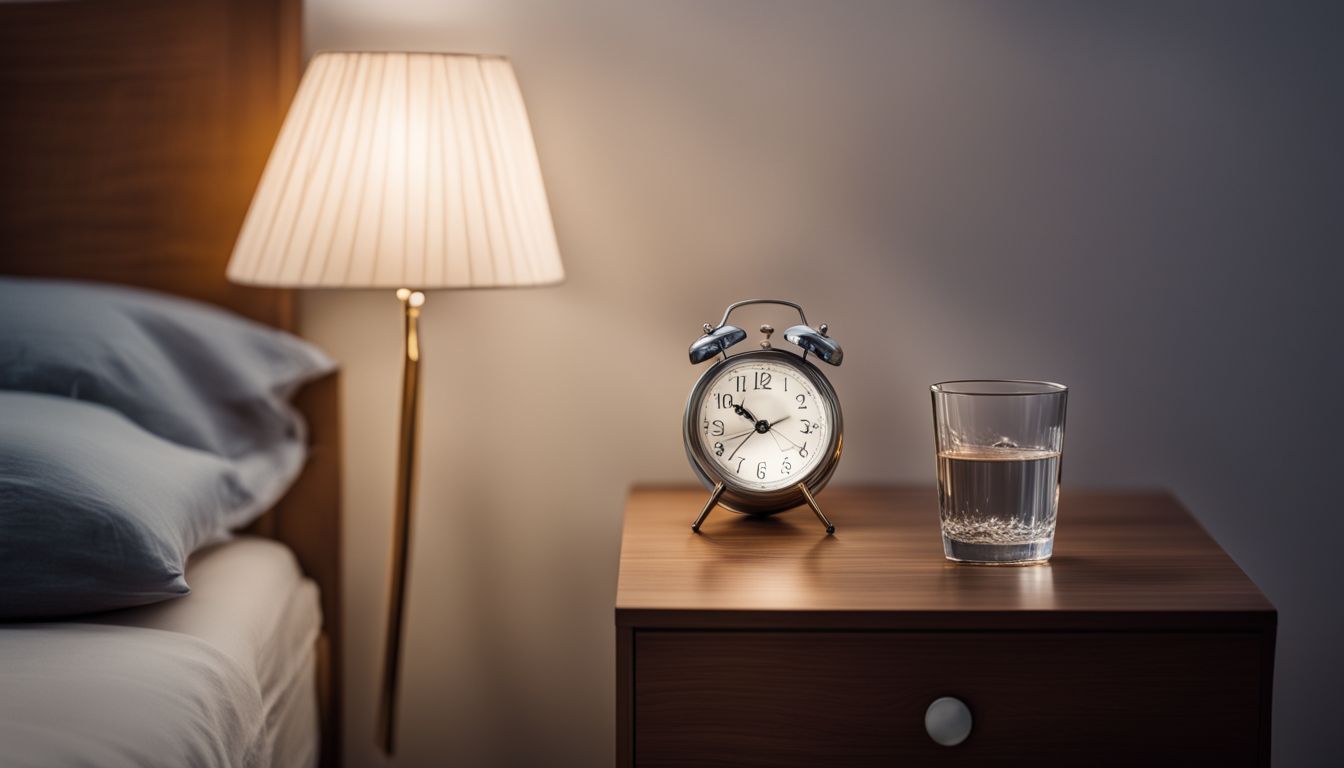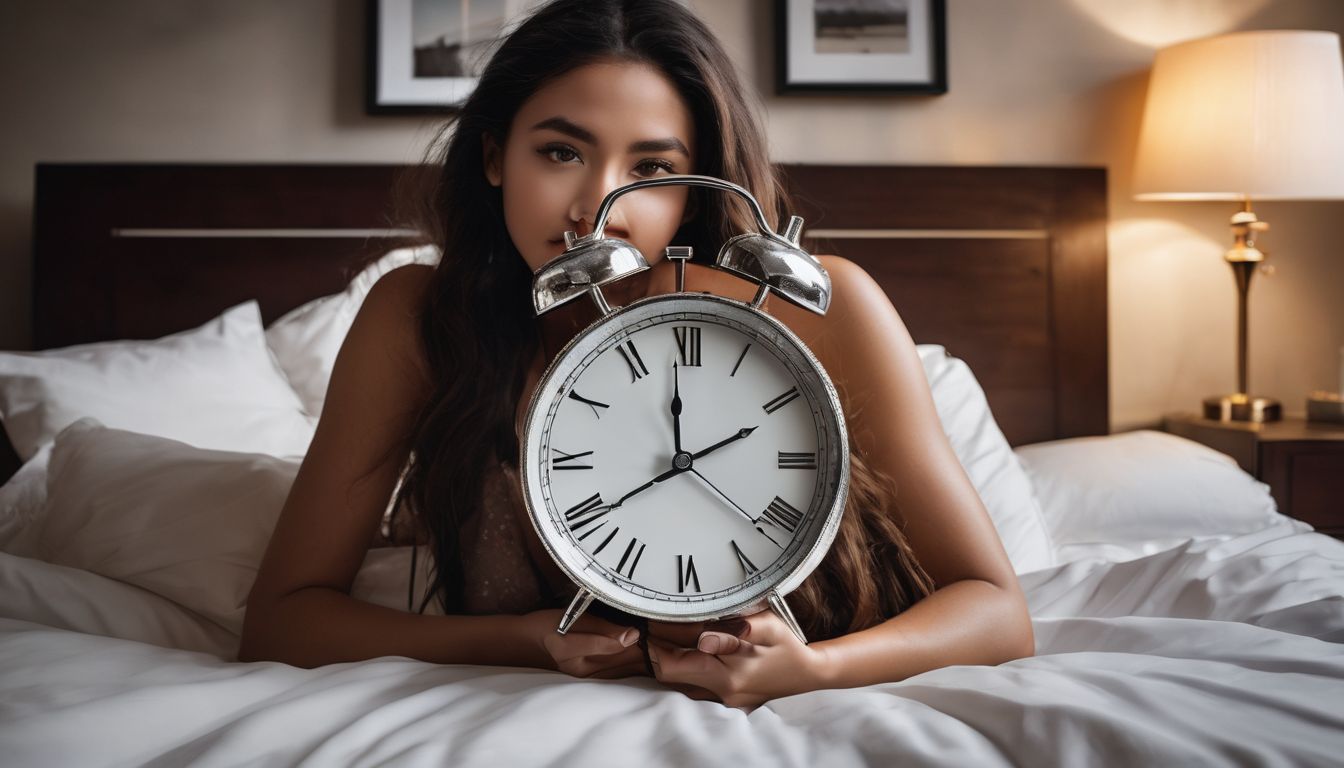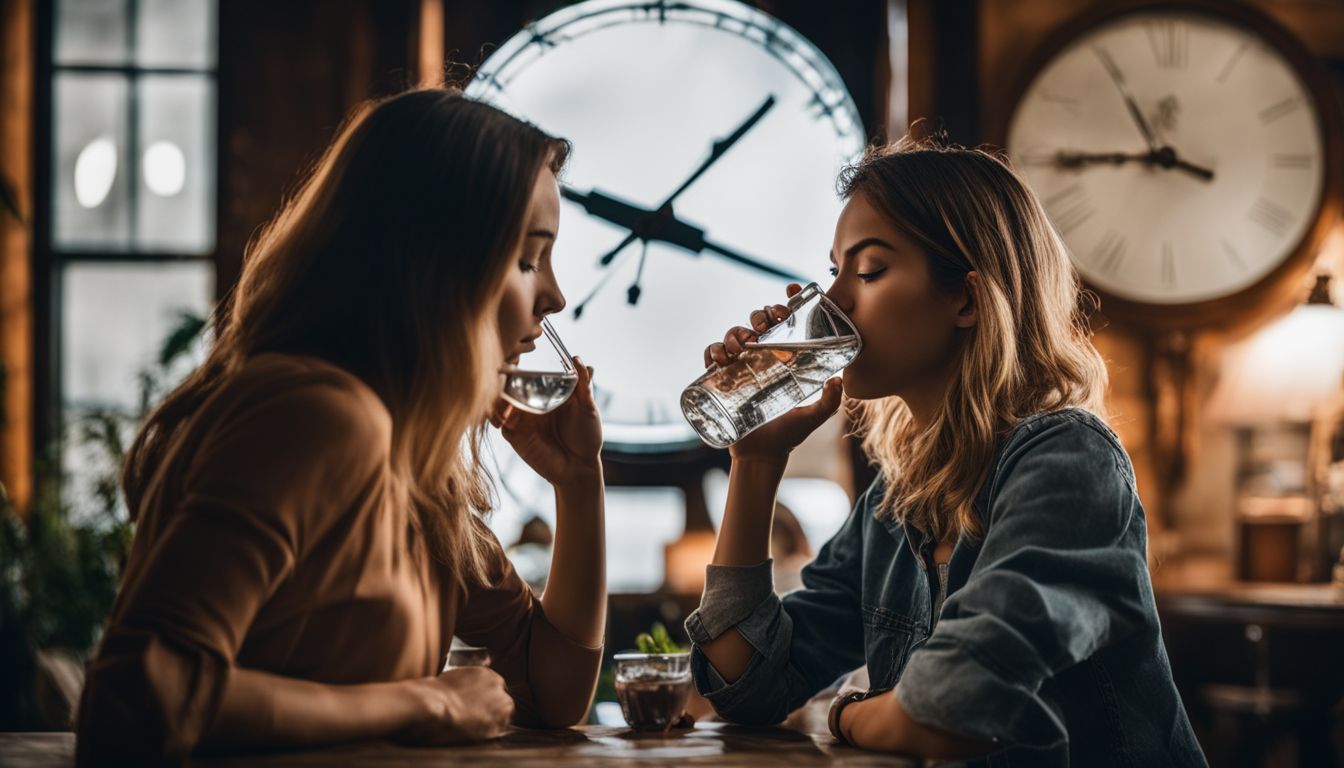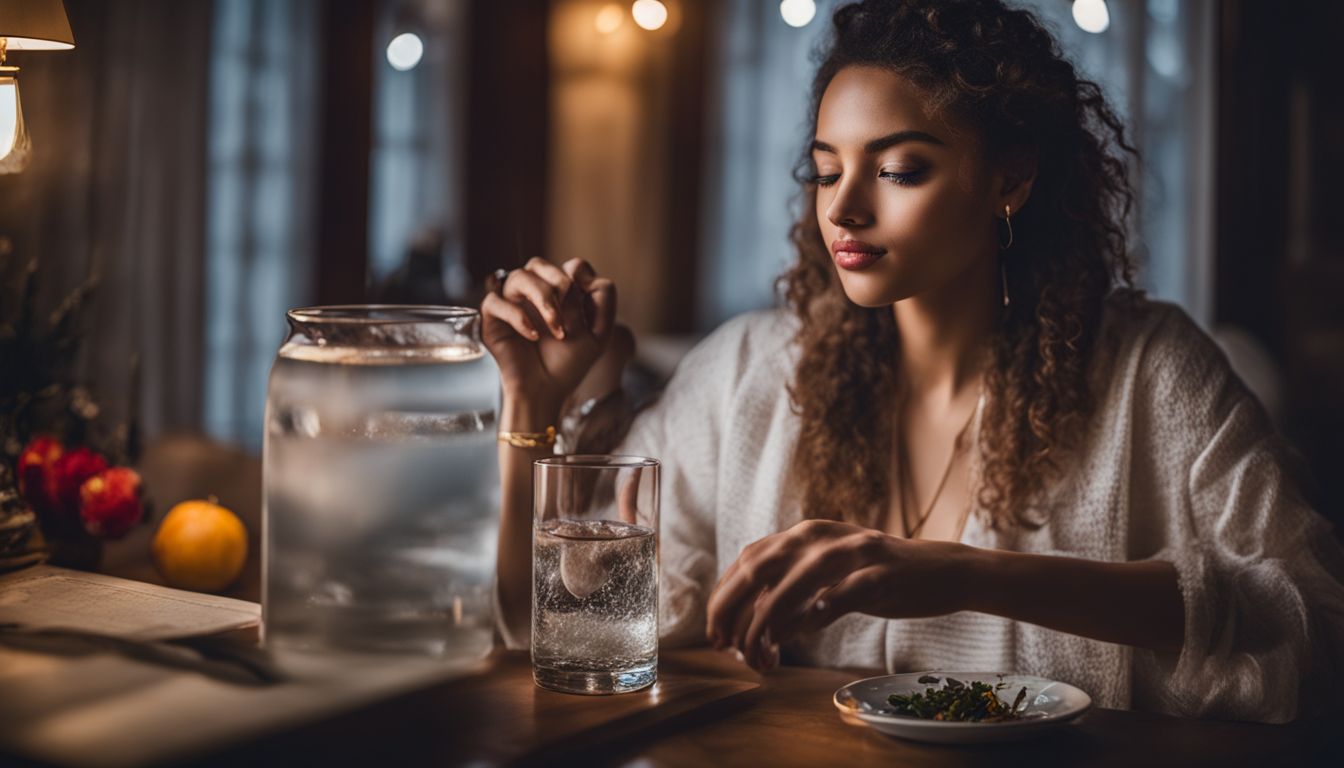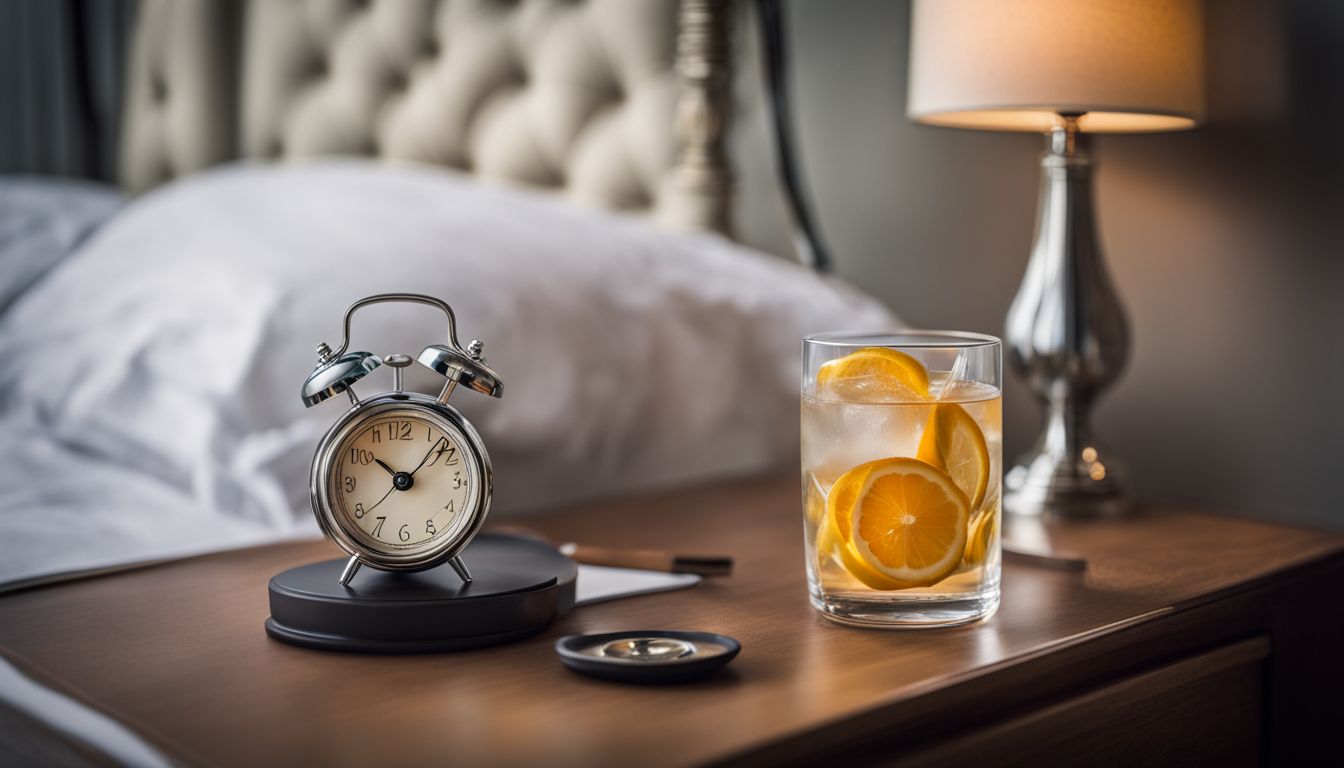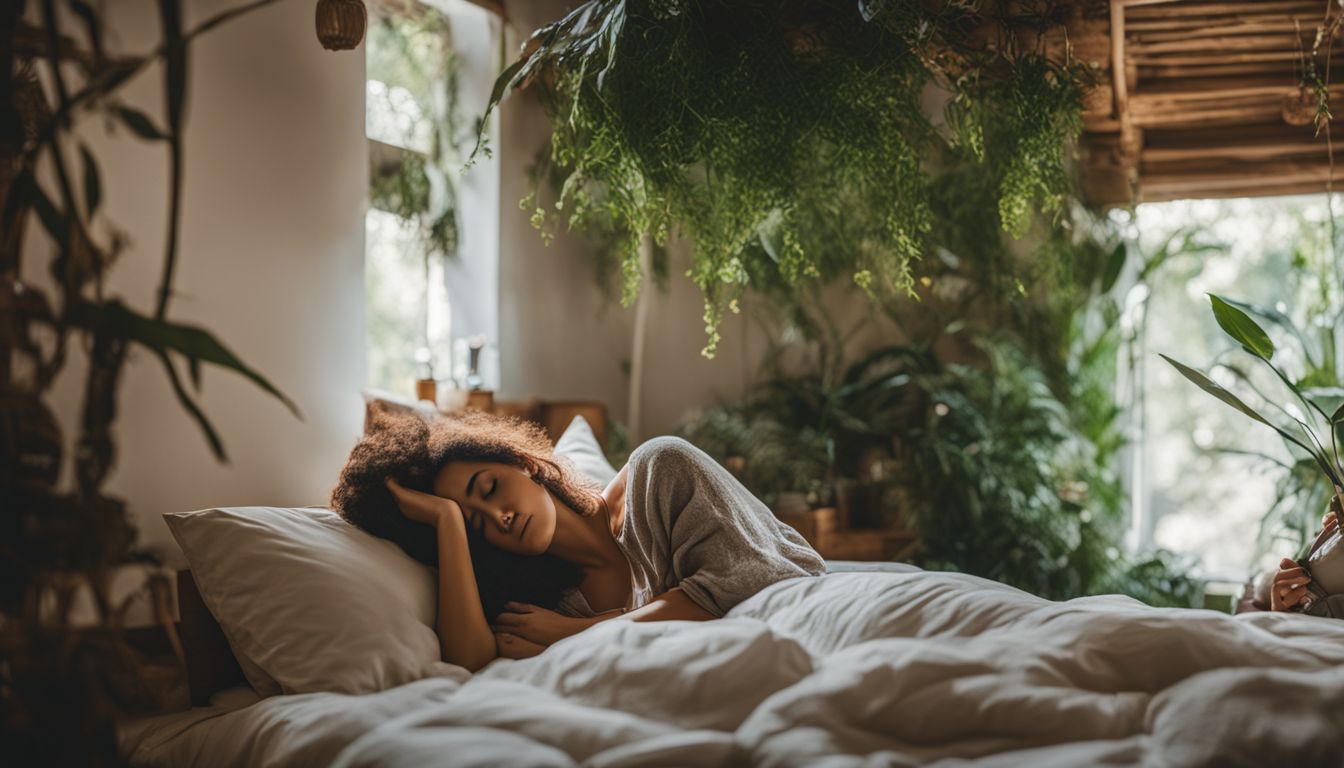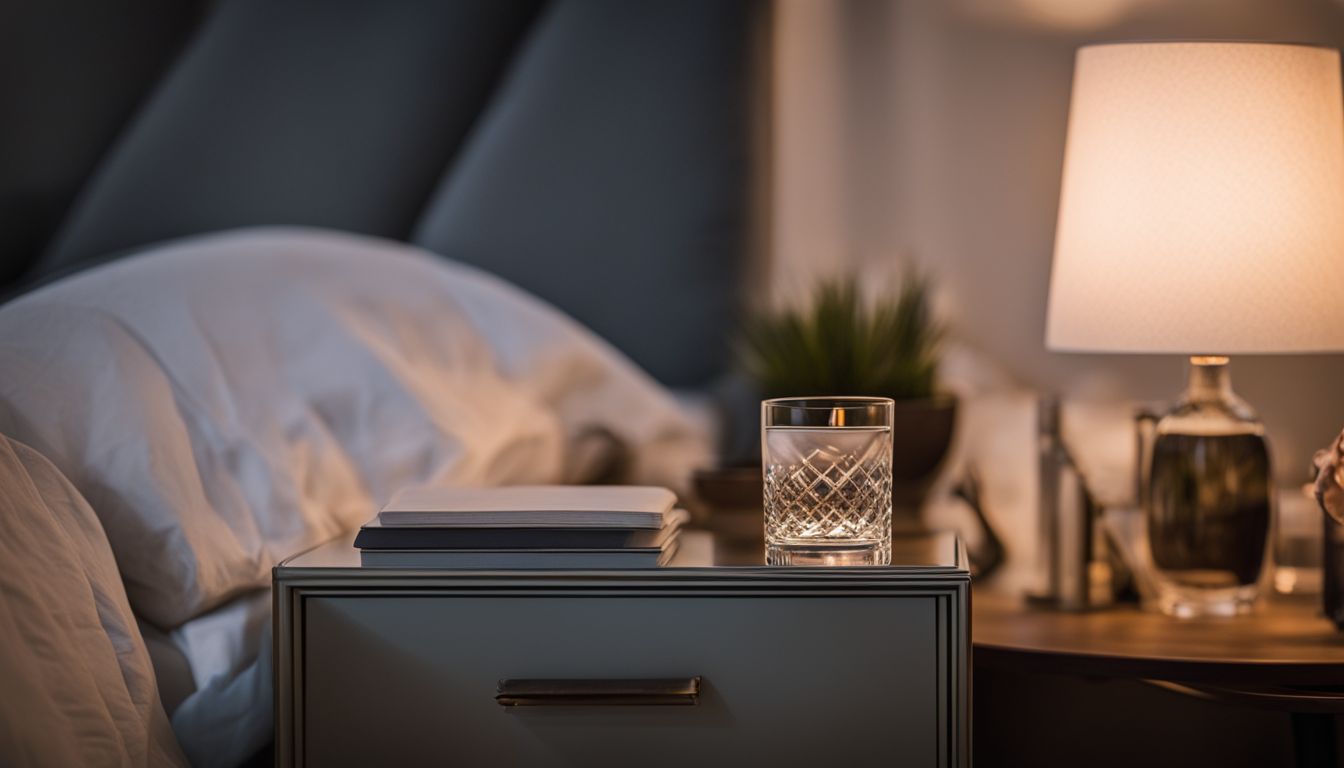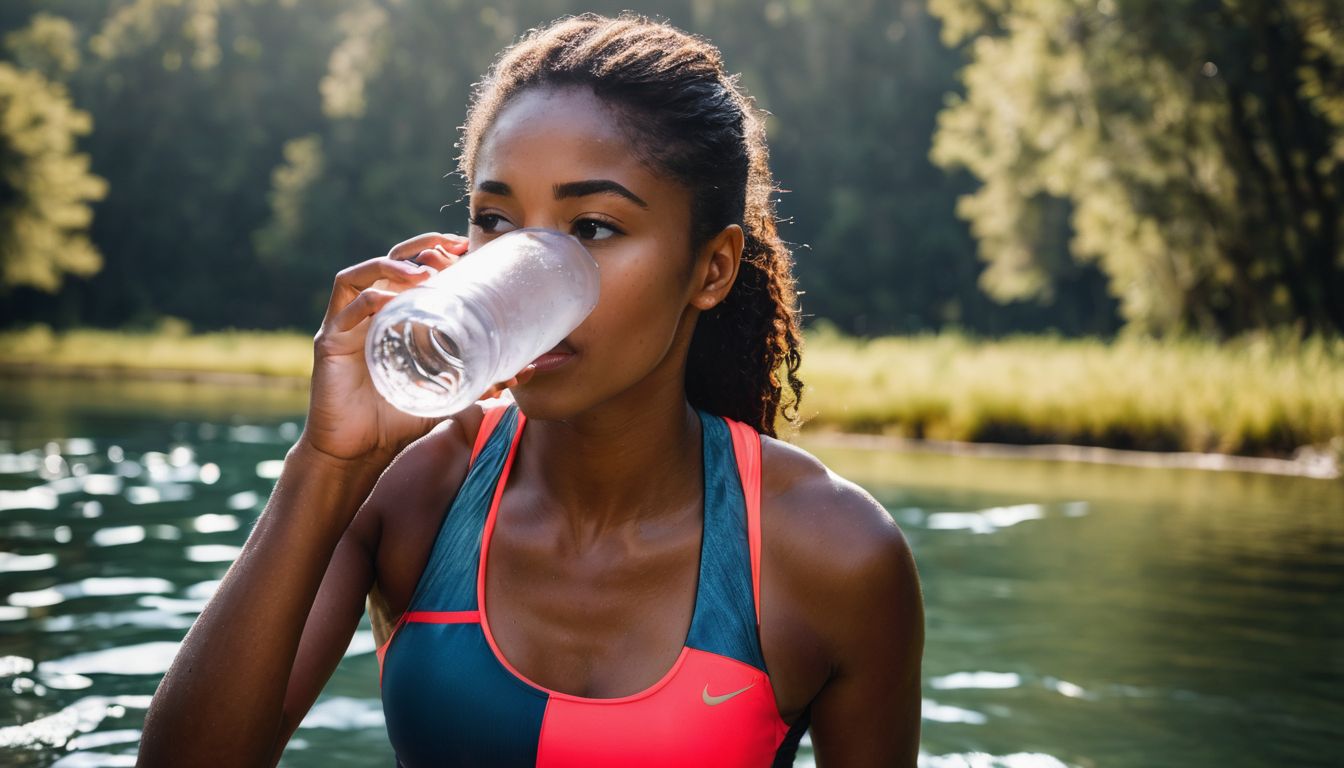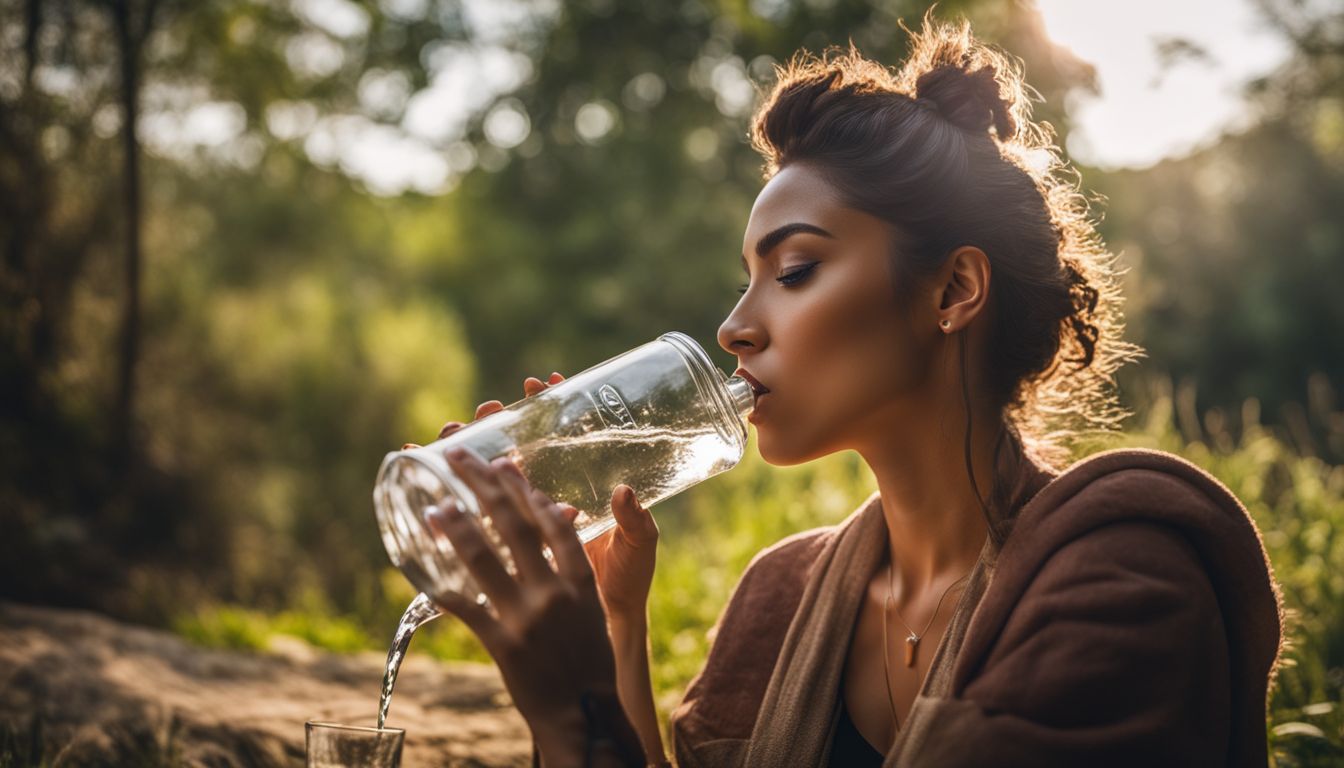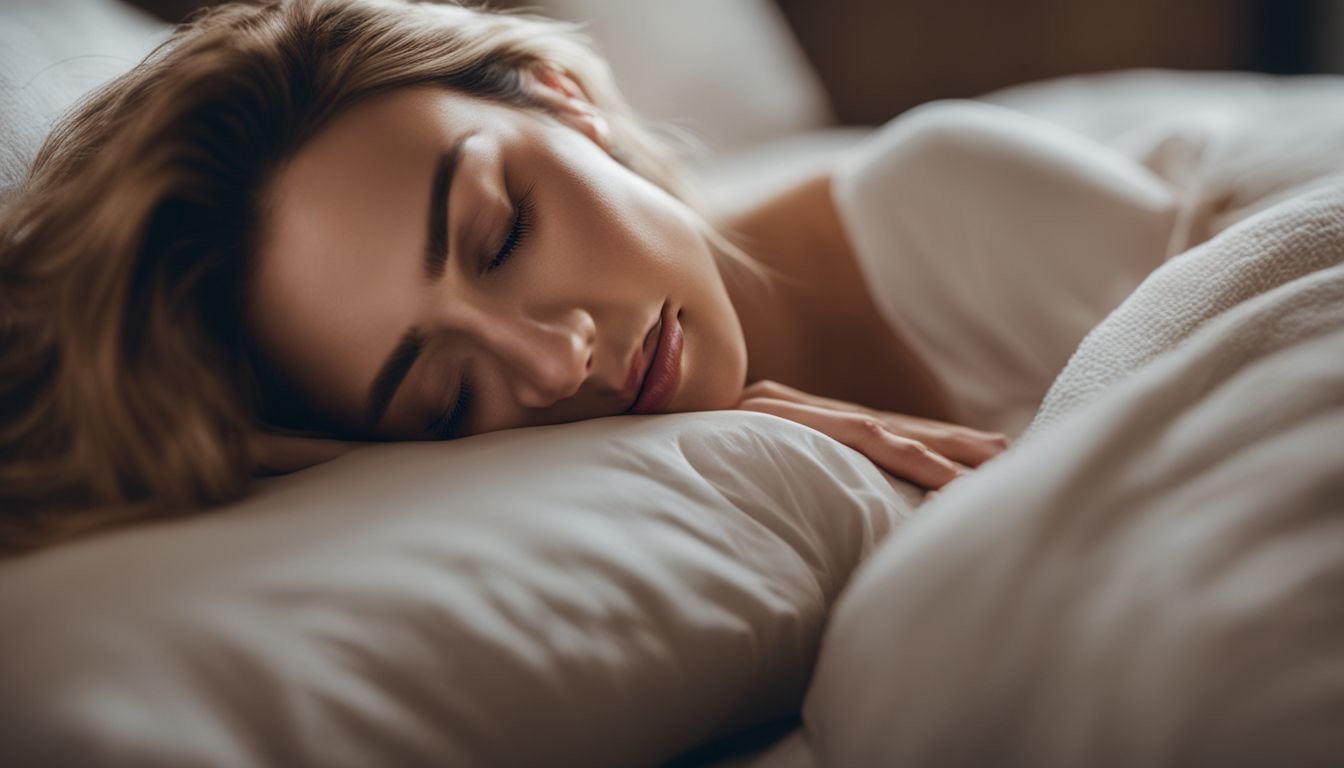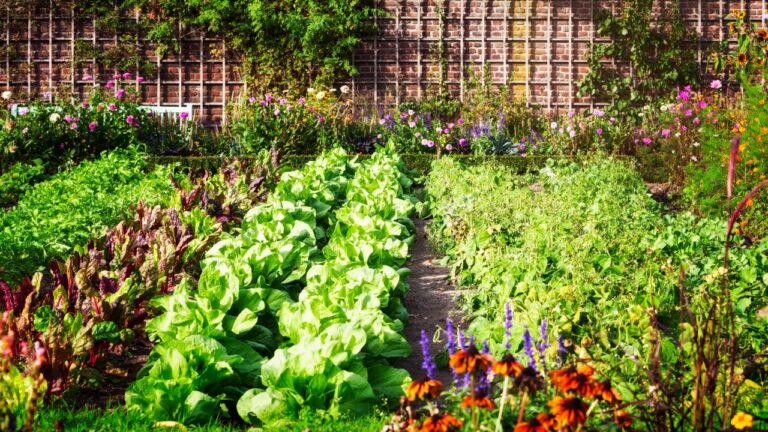This Is The Best Time To Stop Drinking Water If You Want To Sleep Better
Are you tossing and turning, awakened by the constant need to visit the bathroom at night? Studies show that your late-night water consumption could be a likely perpetrator. This article will delve into revealing the best time to stop drinking water for better sleep quality.
Journey with us as we unravel the secrets behind hydration and slumber!
Key Takeaways
- Drinking water before bed can lead to more nighttime bathroom visits, disrupting sleep. It’s best to stop drinking water at least two hours before bedtime.
- Consuming fluids close to bedtime can disrupt your sleep cycle, making it harder to get a good night’s rest. Stopping water intake earlier in the evening can help regulate your sleep and improve its quality.
- Drinking too much water before bed can increase the risk of dehydration throughout the night. Balancing hydration and minimizing nighttime disruptions is essential for proper hydration without risking dehydration.
- Aim to stop drinking water 2 – 3 hours before going to bed for better sleep quality. Finding a balance between staying hydrated and minimizing bathroom trips is key.
The Impact of Drinking Water Before Bed on Sleep
Drinking water before bed can have several negative impacts on sleep, including increased nighttime bathroom visits, disrupted sleep cycles, and the potential for dehydration.
Increased frequency of nighttime bathroom visits
Drinking too much water before bed can lead to more bathroom visits at night. This is called nocturia. People with kidney disease or diabetes have it often. Getting up many times in the night to pee can mess up your sleep.
This is why it’s a good idea not to drink any fluids for about two hours before bedtime.
Disrupted sleep cycle
Drinking water right before bed can disrupt your sleep cycle. When you consume fluids close to bedtime, it increases the likelihood of needing to use the bathroom during the night.
This interrupts your sleep and makes it harder for you to get a good night’s rest. To avoid these disruptions, it is recommended to stop drinking water at least two hours before going to bed.
By doing this, you can have a more uninterrupted sleep and wake up feeling refreshed in the morning. Remember, finding a balance between staying hydrated and minimizing nighttime bathroom visits is key for improving your sleep quality.
Potential for dehydration
Drinking water before bed can increase the potential for dehydration throughout the night. This is especially important to consider if you have kidney disease or diabetes, as excess fluid intake can contribute to nocturia (frequent nighttime urination).
To avoid dehydration, it’s recommended to stop drinking water at least two hours before bedtime. Finding a balance between staying hydrated and minimizing nighttime disruptions is key.
So, be mindful of your fluid intake before bed to ensure a good night’s sleep without risking dehydration.
The Ideal Time to Stop Drinking Water Before Bed
Aim to stop drinking water 2-3 hours before bedtime to find a balance between hydration and minimizing nighttime bathroom trips.
Aim to stop drinking water 2-3 hours before bedtime
- To sleep better, try to stop drinking water 2 – 3 hours before you go to bed.
- This gives your body enough time to process the water and reduces the need for nighttime bathroom visits.
- Stopping water intake before bed can help regulate your sleep cycle and improve the quality of your sleep.
- By avoiding water close to bedtime, you can also prevent dehydration during the night.
- Finding a balance between staying hydrated and minimizing nighttime disruptions is important for a good night’s rest.
Find a balance between hydration and minimizing nighttime bathroom trips
To ensure a good night’s sleep, it is important to find a balance between staying hydrated and minimizing nighttime bathroom trips. While it is crucial to drink enough water throughout the day for proper hydration, drinking too much right before bed can lead to more trips to the bathroom during the night.
It is recommended to stop drinking water or any other fluids at least 2 hours before bedtime to prevent waking up frequently. By finding this balance, you can stay properly hydrated while also promoting uninterrupted sleep.
Benefits of Avoiding Water Before Bed
Avoiding water before bed has several benefits, including improved sleep quality, reduced interruptions during the night, and better overall hydration throughout the day.
Improved sleep quality
Stopping the intake of water before bed can have a positive impact on your sleep quality. When you drink water close to bedtime, it can lead to more frequent trips to the bathroom during the night, which disrupts your sleep cycle.
By avoiding excessive fluids at least 2 hours before bedtime, you can reduce these interruptions and enjoy a more restful sleep. This also helps in maintaining proper hydration throughout the day as drinking water earlier in the evening ensures that you are adequately hydrated without compromising your sleep.
So, for better sleep quality, it’s best to find a balance between staying hydrated and managing fluid intake before bed.
Reduced interruptions during the night
Drinking too much water before bed can lead to frequent bathroom trips during the night, interrupting your sleep. By stopping your water intake at least two hours before bedtime, you can reduce these interruptions and enjoy a more restful night’s sleep.
Finding a balance between staying hydrated and minimizing nighttime disruptions is essential for optimizing sleep quality. Remember, it’s important to prioritize hydration throughout the day to avoid dehydration while still promoting uninterrupted sleep at night.
Better overall hydration throughout the day
Drinking enough water throughout the day is important for our overall health and well-being. When we stop drinking water before bed, it can actually help us stay properly hydrated during the day.
By avoiding excessive fluid intake close to bedtime, we can prevent waking up at night to use the bathroom and potentially disrupting our sleep. This allows us to maintain better overall hydration levels throughout the day, which is crucial for many bodily functions like regulating body temperature, supporting digestion, and promoting healthy skin.
Additionally, staying hydrated during the day has other benefits as well. It helps keep our energy levels up, improves cognitive function, and supports physical performance. By consistently drinking water throughout the day and monitoring urine color as an indicator of hydration, we can ensure that we are getting enough fluids without compromising our sleep quality.
Remember to also hydrate before and after physical activity to replace any lost fluids.
Tips for Hydration Throughout the Day
Stay hydrated by drinking water consistently throughout the day, monitoring urine color as an indicator, and hydrating before and after physical activity. Read more to discover how these simple tips can help improve your sleep quality.
Drink water consistently throughout the day
- Consistently drink water throughout the day to stay hydrated.
- Keep a bottle of water with you and take regular sips.
- Set reminders or use apps to help you remember to drink water.
- Aim for at least 8 glasses (64 ounces) of water per day.
- Drinking water throughout the day helps maintain your body’s hydration levels.
- It can prevent dehydration and keep your organs functioning properly.
- Consistent hydration can also help improve your overall health and well – being.
Monitor urine color as an indicator of hydration
To ensure that you are properly hydrated throughout the day, it is important to monitor the color of your urine. Dark yellow or amber-colored urine may indicate that you are not drinking enough water and could be dehydrated.
On the other hand, pale or clear urine suggests that you are well-hydrated. By paying attention to the color of your urine, you can make adjustments to your fluid intake and maintain optimal hydration levels for better overall health and sleep quality.
Hydrate before and after physical activity
It is important to stay hydrated before and after physical activity. Drinking water before exercise can help prevent dehydration and keep your body functioning properly. During physical activity, you sweat more and lose fluids, so it’s crucial to replenish them by drinking water afterward.
Staying hydrated not only helps with performance but also aids in recovery and prevents muscle cramps. Make sure to drink water consistently throughout the day to maintain proper hydration levels.
Keeping an eye on urine color can also indicate if you are drinking enough water – clear or light yellow urine is a good sign of hydration. Hydrating before and after physical activity is essential for your overall health and well-being.
Conclusion: Prioritizing Sleep and Hydration
In conclusion, stopping water intake at least 2-3 hours before bedtime can greatly improve sleep quality. It helps prevent frequent trips to the bathroom and maintains hydration throughout the night.
By finding a balance between staying hydrated and minimizing nighttime disruptions, we can prioritize both sleep and proper hydration for better overall health.
FAQs
1. What is the best time to stop drinking water if I want to sleep better?
The best time to stop drinking water for better sleep is about two hours before bedtime.
2. Why should I stop drinking water before bed?
Stopping your water intake before bed can reduce the chances of waking up in the middle of the night to use the bathroom, allowing for a more uninterrupted and restful sleep.
3. Can I drink small sips of water if I feel thirsty before bed?
It’s best to avoid drinking any liquids, even small sips, within two hours of going to bed to prevent disruptions in your sleep due to frequent bathroom trips.
4. How much water should I drink during the day if I’m stopping at a certain time?
Ensure you’re adequately hydrated throughout the day by consuming enough fluids based on your body’s needs and activity level. It is generally recommended to drink 8 cups (64 ounces) of water per day.


